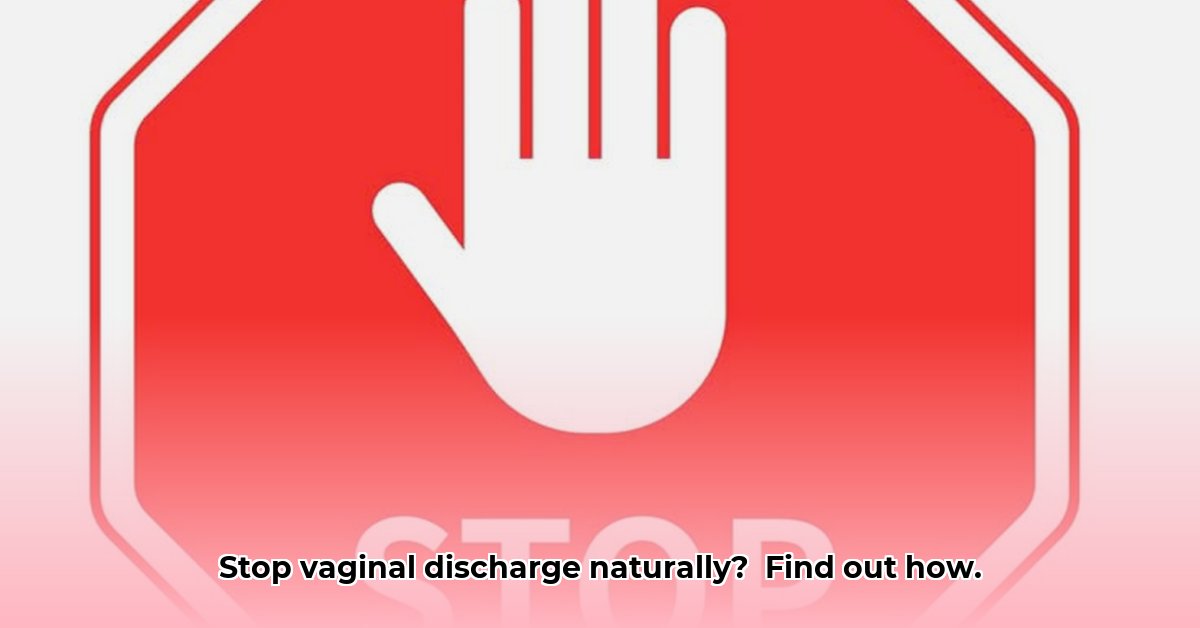
Understanding Your Vaginal Discharge: Normal vs. Abnormal
Vaginal discharge is a natural process, a sign your body's doing its thing, keeping things clean and healthy down there. But knowing the difference between a bit of normal discharge and something that needs attention is crucial. This guide aims to help you understand that difference, offering some gentle home remedies that might help with mild issues – but please remember: this is for info only; it's not a replacement for proper medical advice. Always chat with your gynae or doctor if you're worried.
| Feature | Normal Discharge | Abnormal Discharge |
|---|---|---|
| Colour | Clear, milky white, or pale yellow | Green, yellow-green, grey, brown, bright yellow |
| Consistency | Thin, stretchy, or slightly thicker | Thick, clumpy, cheesy, watery, unusually thin |
| Smell | Mild or no noticeable smell | Strong, fishy, musty, or unpleasant (like rotten fish) |
| Other Symptoms | None | Itching, burning, pain, redness, swelling, fever, heavy bleeding |
Important Question: Have you noticed any significant changes in your vaginal discharge, like a strong unusual smell, or unexpected colour changes? It's always best to err on the side of caution.
When to See a Doctor: Don't Delay!
Certain symptoms mean a trip to the doctor is non-negotiable. Don't wait; get it checked out if you notice:
- Heavy bleeding: Soaking through pads regularly.
- Severe pain or discomfort: Sharp, stabbing pain, or constant discomfort.
- A truly foul smell: A pungent, unpleasant odour.
- Alarming colour change: Bright yellow, grey, or green discharge.
- Itching or burning: Persistent, uncomfortable sensations.
- Fever: This could signal an infection.
Fact: Ignoring abnormal vaginal discharge can lead to serious complications. Seeking timely medical intervention is vital for your health.
Exploring Home Remedies: Informed Choices, Not Self-Treatment
These remedies are for informational purposes only. They might ease some symptoms temporarily, but they can't cure underlying infections. Always consult your doctor before trying anything new, especially if you're on medication.
1. Fenugreek: An Ancient Remedy
- How-to: Simmer a teaspoon of fenugreek seeds in hot water (10-15 minutes). Cool completely and use it externally, as a gentle wash.
- Cautions: Can cause allergic reactions. Limited scientific evidence supports its effectiveness.
- Risk: Low risk if no allergy, but it's not a cure.
2. Tea Tree Oil: Use With Extreme Caution!
- How-to: Never use undiluted. Dilute heavily (1 drop tea tree oil to 10 drops carrier oil like coconut oil). Apply a tiny amount externally. Never internally.
- Cautions: Can severely irritate sensitive vaginal skin. Toxic if swallowed. Limited research on efficacy.
- Risk: High risk of irritation; use only under strict medical supervision and with extreme caution.
3. Probiotics: For Your Gut and Maybe... Your Vagina?
- How-to: Take probiotic supplements as directed. Some suggest they help balance vaginal bacteria.
- Cautions: Can interact with medication. Effectiveness varies.
- Risk: Generally low risk, but consult your doctor.
4. Coriander Seed Water: A Natural Rinse (external use only!)
- How-to: Boil a tablespoon of coriander seeds in water, cool, strain, and use as a gentle external wash.
- Cautions: Limited scientific evidence. Potential for allergic reactions.
- Risk: Low risk, but don't rely on it alone.
Expert Opinion: "Home remedies should be viewed as supplementary, not primary, treatments for vaginal discharge. Always consult a healthcare professional for proper diagnosis and management," advises Dr. Nomusa Mbatha, Gynaecologist at [Hospital Name].
Preventative Measures: Looking After Your Vaginal Health
Maintaining good vaginal health is key to preventing problems:
- Gentle Cleaning: Wash gently with plain water; avoid harsh soaps or douches.
- Safe Sex Practices: Using condoms significantly reduces STI risk.
- Balanced Diet: A healthy diet contributes to overall wellbeing, including vaginal health.
- Cotton Underwear: Opt for breathable cotton underwear.
Disclaimer
This information serves educational purposes only and is not a substitute for professional medical advice. Self-treating can be dangerous. Always consult a doctor or other qualified healthcare provider for any questions you may have regarding a medical condition.